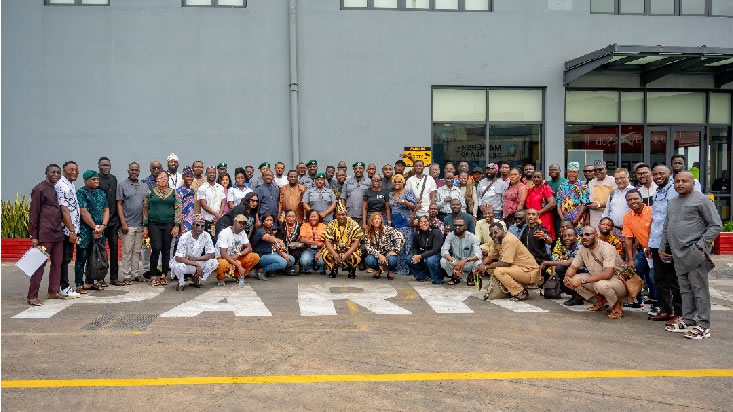Paragraph 1: Introduction and Context
Nigeria’s bustling Lagos Port Complex, Apapa, the nation’s primary maritime gateway, is undergoing a significant digital transformation with the implementation of the B’Odogwu customs management platform. This next-generation system, designed to replace the aging Nigeria Integrated Customs Information System (NICIS), aims to modernize port operations, enhance transparency, and expedite cargo clearance. While the platform holds immense promise for streamlining trade processes, its initial rollout has presented challenges for stakeholders across the logistics and freight forwarding sectors, necessitating collaborative efforts to ensure a smooth transition.
Paragraph 2: Collaborative Training Initiative
Recognizing the difficulties encountered by port users, APM Terminals Apapa, a leading terminal operator at the port, partnered with the Nigeria Customs Service (NCS) to organize a comprehensive training session for consignees and clearing agents. This initiative, driven by feedback received from customers grappling with the new system, provided a valuable platform for dialogue and learning, enabling stakeholders to navigate the complexities of the B’Odogwu platform. The training underscored the importance of collaboration between public and private sector entities in facilitating successful technology adoption within the maritime industry.
Paragraph 3: Addressing the Challenges of B’Odogwu Implementation
APM Terminals Apapa’s internal review revealed a concerning trend: a decline in cleared cargo volumes despite a surge in discharged imports. This discrepancy highlighted the impact of the B’Odogwu migration on cargo movement through the terminal. The training session delved into the specific challenges faced by stakeholders, addressing issues such as bank payment visibility, procedural ambiguities, and other technical hurdles. By directly engaging with customs officials and fostering open communication, the training aimed to equip stakeholders with the knowledge and tools necessary to effectively utilize the new platform and overcome operational bottlenecks.
Paragraph 4: Establishing a Dedicated Resolution Hub
In addition to the training, APM Terminals Apapa launched the “B’Odogwu Clinic,” a dedicated resolution hub designed to provide real-time assistance to stakeholders navigating the new system. This clinic offers support with documentation, shipment processing, and platform navigation, ensuring that operational issues are addressed promptly and transparently. By establishing this dedicated resource center, APM Terminals Apapa demonstrates its commitment to customer service and its proactive approach to problem-solving during this critical transition phase.
Paragraph 5: Perspectives from Customs and Industry Stakeholders
Representatives from the Nigeria Customs Service acknowledged the initial teething problems experienced during the B’Odogwu rollout. They emphasized the ongoing efforts to address these challenges and reiterated their commitment to continuous engagement with stakeholders through further training and direct interaction. Industry representatives, including members of the Lagos Chamber of Commerce and Industry and logistics professionals from various companies, expressed optimism about overcoming the early difficulties and praised the collaborative partnership between APM Terminals Apapa and the NCS. Testimonials from participants highlighted the value of the training in clarifying uncertainties and providing direct access to customs officials for addressing specific concerns.
Paragraph 6: Looking Ahead: A Path to Seamless Trade Facilitation
The collaborative efforts between APM Terminals Apapa, the Nigeria Customs Service, and industry stakeholders represent a crucial step towards realizing the full potential of the B’Odogwu platform. By addressing the initial challenges through training, direct engagement, and the establishment of a dedicated resolution hub, the partners are paving the way for a more efficient and transparent cargo clearance process at the Lagos Port Complex, Apapa. This collaborative approach serves as a model for successful technology implementation in the maritime sector, demonstrating the importance of partnerships in driving positive change and facilitating seamless trade. As stakeholders gain proficiency with the new system, the B’Odogwu platform promises to significantly enhance trade facilitation and contribute to the overall efficiency of Nigeria’s vital port infrastructure.


